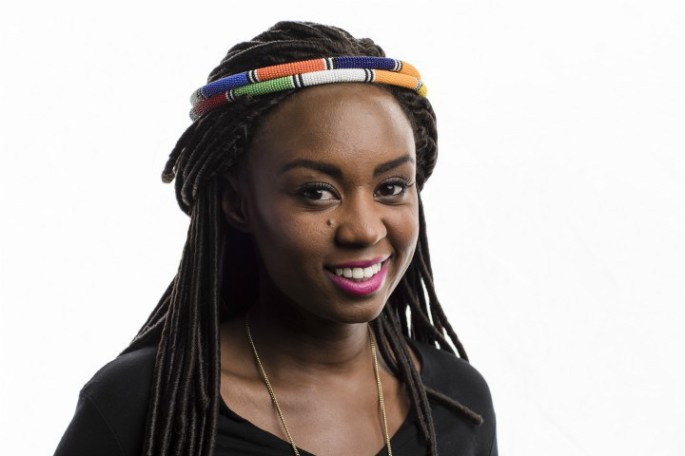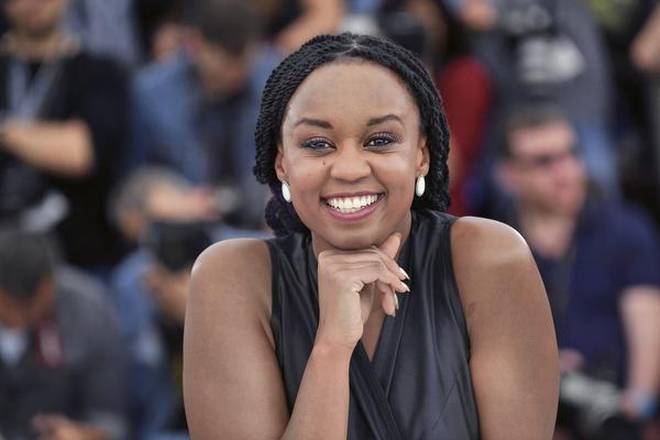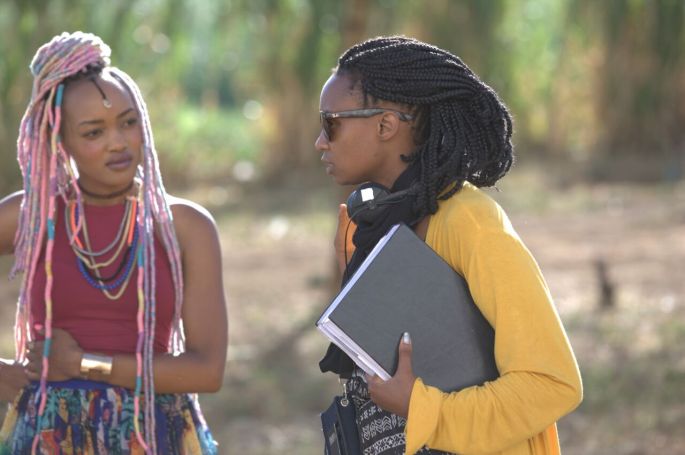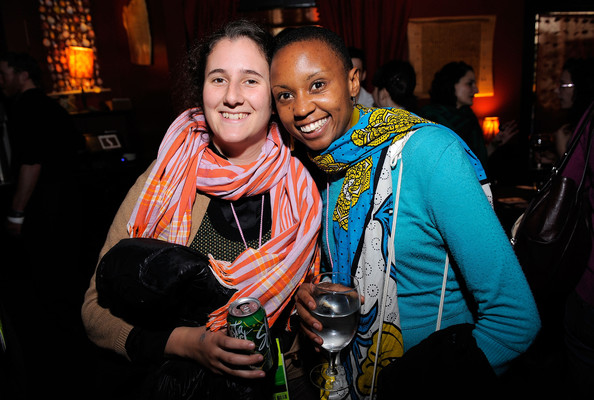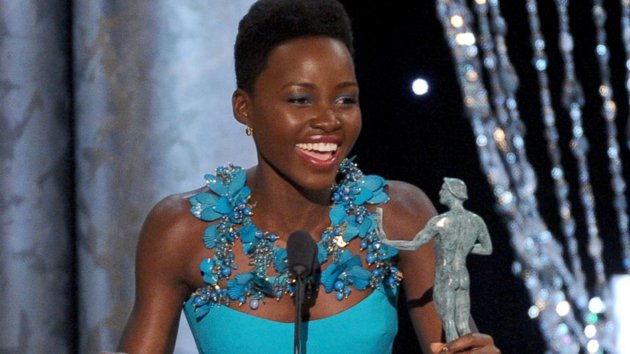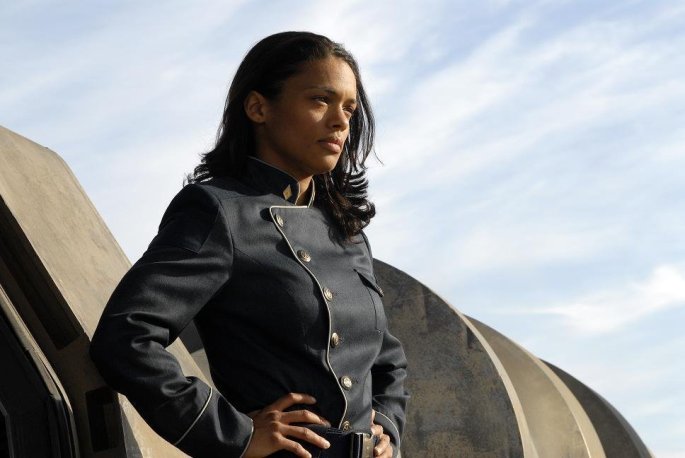In spite of all the challenges in the movies industry, Nigerian and indeed African film makers are moved by passion and the desire to impact the lives of Africans – both film makers and the audience – positively. St. Hilary’s Magazine’s Jere Efeturi sat down to an interview with Nigeria’s movie star Segun Akiremi.

SHM: What was your early life like, growing up?
SEGUN AKIREMI: Well I was born in Ebute-Metta and brought up in Ebute-Metta, I attended St. Paul’s Anglican school, Idi-Oro and later moved to Eko Boys High School, Idi-Oro. I finished my secondary education at Kings College, Lagos. From there, I gained admission into the Centre for Cultural Studies, University of Lagos (UniLag). At that time, there was a certificate course there and at the same time, there was also a performing troupe there. This was from 1965 to 1971. After that, I moved to University of Ife (now Obafemi Awolowo University) for a Diploma in Theatre Arts on scholarship. From there, I proceeded to the University of Ibadan for Directing and Cinematography. That is for stage and cinema. I did both Diploma and Degree programs there. I was part of the FESTAC 77 project and after that I got opportunities to be involved in many Soaps- Opera in NTV (Nigerian Television) which later became NTA (Nigeria television Authority).
SHM: Sorry please, let me take you back a little, you went to Eko Boys High School in idi-Oro and from there to King’s College, Lagos Island. How were you able to manage this transition?
SEGUN AKIREMI: Well, Eko Boys then or Idi-Oro then was very tough. There were many cinema houses around and many well known criminals too. My parents didn’t want me there and so, they had to move me to Lagos. As a child, I was brought up in a Christian family. My mother was a Prophetess in a church called Eternal Sacred Order of Cherubim and Seraphim located at 75 Ibadan Street, while we were staying at Bola Street, Ebute-Metta. We were raised up in a very godly manner. The fear of God was put in us. I was born a twin and I’m Kehinde.
SHM: What about your twin?
SEGUN AKIREMI: My twin sister, my twin sister is alive and very fine. She’s doing very well for herself. Our parents were very strict. They were no-nonsense persons, especially my mother.
SHM: Okay, talking about your parents being strict and you know back then, strict parents didn’t want their children in the arts, let alone acting which was considered an unserious thing to venture into, how is it that you were able to convince your parents to allow you go into acting?
SEGUN AKIREMI: It was not an easy thing. However, what helped me was the fact that I had elder ones, who were already into acting, the likes of Yemi Remi and Fola Remi who later left for the Banking Industry, made it not so difficult for me to convince my parents about a career in acting. Interestingly, I started at a very young age.

SHM: Alright! So, at the time, you were involved in The Spirit of Lagos, a play written by Akinwunmi Ishola and Directed by Bayo Oduneye. Can you tell us about it?
SEGUN AKIREMI: Well, The Spirit of Lagos is a story about Lagos. It talks about Lagos in the past, present and future as it is today of Lagos. Apart from The Spirit of Lagos, there were also many other plays back then that I also played a role in.
SHM: Interesting! Through the Anansa Play House?
SEGUN AKIREMI: Oh! Anansa play House! Let us not start from Anansa Play House. Let us start from the National Arts Theatre. After FESTAC 77, the dancers at the Centre for Cultural Studies were the people that were used by the Federal Government for programs then; there was no Ministry of Culture, no National Troupe, just dancers and Centre for Cultural Studies of the University of Lagos (UniLag). It was from there that dancers were taken to entertain visiting Presidents of other countries or during other programs of the government, I was part of all that. After that I went into acting in films, plays and TV soaps and so on. Now at a point, one of us, one Becky Musa had a medical problem and needed assistance. Myself and others including senior colleagues had to rally round to raise money for her to get proper medical attention. We were successful in our bid to get her the desired medical attention. It was after this we decided that we do not have to wait till when there is a problem before we would start rallying round to raise money to assist ourselves. That was how we founded NANTAP. The AGN you see today is from NANTAP. Now but before the AGN, there was what we call the Anansa Play House; a guy from Cross River, Bassey Effiong was a friend and we thought there should be a troupe that can move around. This was to be a travelling troupe for English productions. We pulled scripts from Literature books that were used by schools then. That was how the Anansa Play House came to be and operated.
SHM: Okay, fine. So these plays I know were inclusive of Kongi’s Harvest, Langbodo, Kiriji War, Oba Ovoramwhen Nogbaise and a host of others. How was this experience?
SEGUN AKIREMI: Our Husband Has Gone Mad Again was one of them. As at that time, there was nothing like money. You work. No fees paid. They want the best out of you. They want to see how good you are. You work. What we were after then was the exposure. There was nothing like I’m looking for money. You don’t charge. Whatever you’re given, you take it and you’re happy and contented with it.

SHM: So, Mirror in the Sun.
SEGUN AKIREMI: Oh! That’s a wonderful one. It was a good experience. Auty Taiwo, Late Aunty Bukky Ajayi and Funsho Adeolu came to the National Theatre and watched some of our stage productions and beckoned on me that he wants to see me that there’s a production they want me to be involved in. It was on that production, I met Liz Benson. She acted as my wife. Before that, there was a soap titled The Image
Which was on NTV then, we were very committed, we were not looking for what we would gain from the industry but what we would contribute to the development of the industry. And, most of us were trained from the university or from the travelling theatre. So, if you want to mention plays that I acted in, there were so many that I would only remember the experience in a few of them. There were so many really. The thing is that you cannot be invited for an English production if you haven’t been trained in a university.
SHM: Now, let’s take a look at your fans, you seem to always act the role of a wealthy man, so how are you able to manage your fans, how do they see you?
SEGUN AKIREMI: Well in those days, I played the roles of wealthy characters and all that and that is the mentality of the audience. They believe that what you act is what you are. At a time, armed robbers started chasing me around. Believing they want to take their share of my money and all that. I had to tell them that I don’t have that money, that they can’t get anything from me. There’s a Hotel in Fadeyi, I went there and lodged in there for about two years because I was running away from the armed robbers. That’s because of the roles I played.
SHM: Roles like the Ones you took in Are Ona Kakanfo, Tori Nkan Nkan,, Karan His Royal Highness and so on
SEGUN AKIREMI: Yes, so the mentality is to get money from the actors or actresses. They wouldn’t appreciate you but embarrass you and if you don’t give anything they can break your windscreen, they can do so many things. We don’t get appreciation from them but persecution. This is so sad! But when we travel out, it is different. Foreigners appreciate us.

SHM: Okay, let’s go into something a little political. You were involved with Action Congress of Nigeria (ACN) at a time, and there’s this 8 million naira fraud allegation leveled against you. What is the true story?
SEGUN AKIREMI: Thank you. The true story is this. I was part of Action Congress of Nigeria (CAN), I was even a part of the mobilization committee. I played my role as a member. After all we have done, the Chairman of the party then, Chief Henry Oladele Ajomale asked me a question, he said, this Igbos, how do they do their film that it is sharper, cleaner, perfect, smooth than we yorubas? That it is a good question I answered. And said, they pump money into film production, they also know that what they have invested will not come out immediately, they put their best and all what they have in it. They put out their cars, houses and all that is necessary. But the Yorubas don’t have that. The Yoruba film industry doesn’t have financiers. I also told him that the few that are willing want to put in peanuts and gain so much. And so I said that is what we are facing.
He then asked, if you want to do a good job that is better than what they (Igbos) do, how much will it cost? We now gave a cost of 24 million. He said that was too much. So we said okay. He said we should bring a script. We sat down and put a script together; he then said he wants to do a friendly thing, he just wants to assist that we should give him time. That he doesn’t have 10 or 16 or 25 million to shoot a film that he only had 5 to 6 million to give. So I said okay, I then suggested to him that we would premiere the film and bring in financially capable Nigerians to attend. That way, he would get his money and that the remaining money will now be shared. He said no, no, no, that he just wants to assist me with the money and that after I have finished I should give him back his money. That it is a no interest loan.
He then sent his lawyer to me to discuss. The lawyer brought an agreement form which I signed and he asked me to take it to chief Ajomale’s office. When I got to his office, Chief Ajomale said that I should drop it. That whenever they are ready they will fill it and that there is nothing necessary in filling any agreement. So up till now, they didn’t return my copy of the agreement. They said we should just go ahead and shoot. So, I don’t have a copy of the agreement. But before we shot I asked for my copy but they said it was not necessary.

So, his Personal Assistant at the time kept on disturbing me that he is the one convincing Chief to sponsor the film. That Chief wants to sponsor some other films; so what he would do is that he would take 1 million from 5 million. The lawyer also asked for 500 thousand for the agreement. I then called Chief Ajomale to tell him what was happening and he said that is your own cup of tea that whatever the lawyer says I should do. So, the lawyer took 500 Thousand Naira from the money and the Personal Assistant to Chief Ajomale took 750 Thousand Naira before we even started working.
We then went to Oyo state to shoot the movie we managed the fund. After everything, we sat down to talk about the premiere. We decided to invite certain persons and we said that from money generated we would give Chief Ajomale his money back. Then the Lawyer and the personal Assistant said whatever is left, they would take 50% and give me 50% and I said no. They said they would give chief Ajomale 20% and the both of them will share the remaining 30% and I said no. That is where the problem started from. Even before then, I went to Chief Ajomale to give me extra 1 million to hire the hall for the premiere. He agreed to give me the extra money. He gave me, I paid for the hall, did the invitation, brochure, souvenir and what people will take home.
Now because I had a disagreement with his lawyer and the personal assistant, they now said, because I disagreed, they would not go along with the premiere anymore. They then went back to the sponsor to tell him that I have shot nonsense. That what I shot cannot be premiered. Chief Ajomale did not watch it, he didn’t preview it but he listened to them. They pulled out of the premiere and left me to do it alone. Now, Chief Ajomale is asking me to give him his 6 million and his lawyer and personal assistant have also told him that I am supposed to give him another 2 million even though that is not our agreement.
SHM: So where is the additional 2 million coming from?
SEGUN AKIREMI: They say it is from the premiere that they backed out from. They didn’t invite anybody, they didn’t do anything again.
SHM: Chief Ajomale said he is no more interested in any premiere that he wants his money, so why then are they asking for extra 2 million?
SEGUN AKIREMI: I called him and he stopped picking my call. The day Chief Ajomale even gave me the first cheque of 2.5 Million Naira; the personal assistant followed me to the bank and collected 850,000 Naira from me.
SHM: Okay, did the premiere take place?
SEGUN AKIREMI: The premiere took place but the hall was empty, the people who were supposed to be invited by Chief Ajomale were not there to launch the movie. So we didn’t realize any money. I was threatened. I noticed a black car following me everywhere. So when I started seeing all these, I called Jide Kososko, Bello, Biodun Majekodunmi (Baba Kekere) and my brother Yemi Remi that this is what I am seeing. So they decided to go and see Chief Ajomale to tell him what happened. The man was not interested; all he was saying was that my lawyer and my personal assistant said that film is nowhere to be found, that I used the money to rent a house that I didn’t shoot any film, that what I shot was nonsense. They came back to me and told me what transpired. They then took the Master from me to watch. After watching the film, they asked if I got a loan somewhere else apart from that money given by Chief Ajomale. They then said if it were them, they would manage 20 Million Naira plus.

They then went to Chief Ajomale and asked him if he has watched the film? But he said he is not interested that he doesn’t want to watch any film. They then told him that the film they have watched is more than 15 or 20 Million Naira. He said what he wants is his money. They told him that film production is not done like that. That you have to act in line with the agreement, and then do the exhibition, then go into marketing. It is then you can get your money. He now said Jide Kosoko should go and manage the issue. Jide came back to me and asked me what could be done. I told him there is nothing that can be done other going back to the status quo, back to what we agreed on. We should premiere the film having who is who in Nigeria in attendance. The film is still in the studio till now. God will help me, even if I can get my hand on 3 Million Naira, I would send it to him so that this issue can come to an end.
SHM: Okay, your love life, tell us about your love life.
Well, I’m a widower. There’s nobody in my life. For four to five years now, but that loneliness is killing me.
SHM: Does that mean that mean there’s vacancy now?
Yes, there’s vacancy
SHM: Okay, tell us about Yewande Benedicta Thomas
SEGUN AKIREMI: This is another story oh! We met at the Lagos State Council of Arts and Culture then. She was a dancer and actor. I loved her but I was nobody then. She’s from a wealthy home and so her parents saw me as nobody and somebody that had nothing to offer. They did a lot of nasty things to me. When she was heavy, they asked me to come and marry her, they did many things. When she put to bed, the child was named in my own church. Her parents said she would not stay in my house and took her back to their house. It was then that problems started. I didn’t set my eyes on this child for good 19 years. I cried, made a lot of noise about it but all to no avail. Until one day, I went to a church and a lady gave me a lead on how to get my son. By the special grace of God, that son has been with me for 10 years now.

SHM: Wow! Where do you see the Nigerian film industry in the next five years?
SEGUN AKIREMI: The Federal Government of Nigeria should support the film industry the way they support sports in Nigeria. Actors are not appreciated, they are not recognized…
SHM: So, where do you see the industry in the next five years?
SEGUN AKIREMI: I don’t know because there’s a lot of piracy now, there are lots of people who do not have faith in the industry…
SHM: Are you saying there is no future for the industry in Nigeria?
SEGUN AKIREMI: My brother, I have to be frank with you. Whoever says he or she is making money in our profession in Nigeria as at today has something else doing. We are paying ourselves peanuts.
SHM: What is now your advice for upcoming artistes?
SEGUN AKIREMI: Before I go to the upcoming actors, the Federal Government should see something good in our industry, they should pump money in our industry and the Federal government can make more money from this industry than crude oil. For the upcoming actors, they should not put money first, many of them just want to have fame and use it for something bad. They should have passion for the job; they should not rely on film alone, they should have other things doing. Good things doing. If you’re good, you would get endorsements and the likes. It is not a day’s journey. It is not 2, 3 years journey. They should be committed.
SHM: What impact do you think you have created in the lives of your audience and precisely fans?
SEGUN AKIREMI: I know I have influenced my fans in the positive direction. However, I would like them to have a change in attitude. They should learn to appreciate actors and actresses and not to extort them. What we do is for the good of the society, to make for a better society; so, meeting with us shouldn’t be an avenue to extort us but an avenue to appreciate us.
SHM: In conclusion, do you consider yourself successful and why?
SEGUN AKIREMI: To God be the glory! As at today, if I can have positive impact on the lives of people around me and my audience, then I am successful.
SHM: Thank you very much sir, that would be all for now!
SEGUN AKIREMI: You’re welcome my brother.
End.
